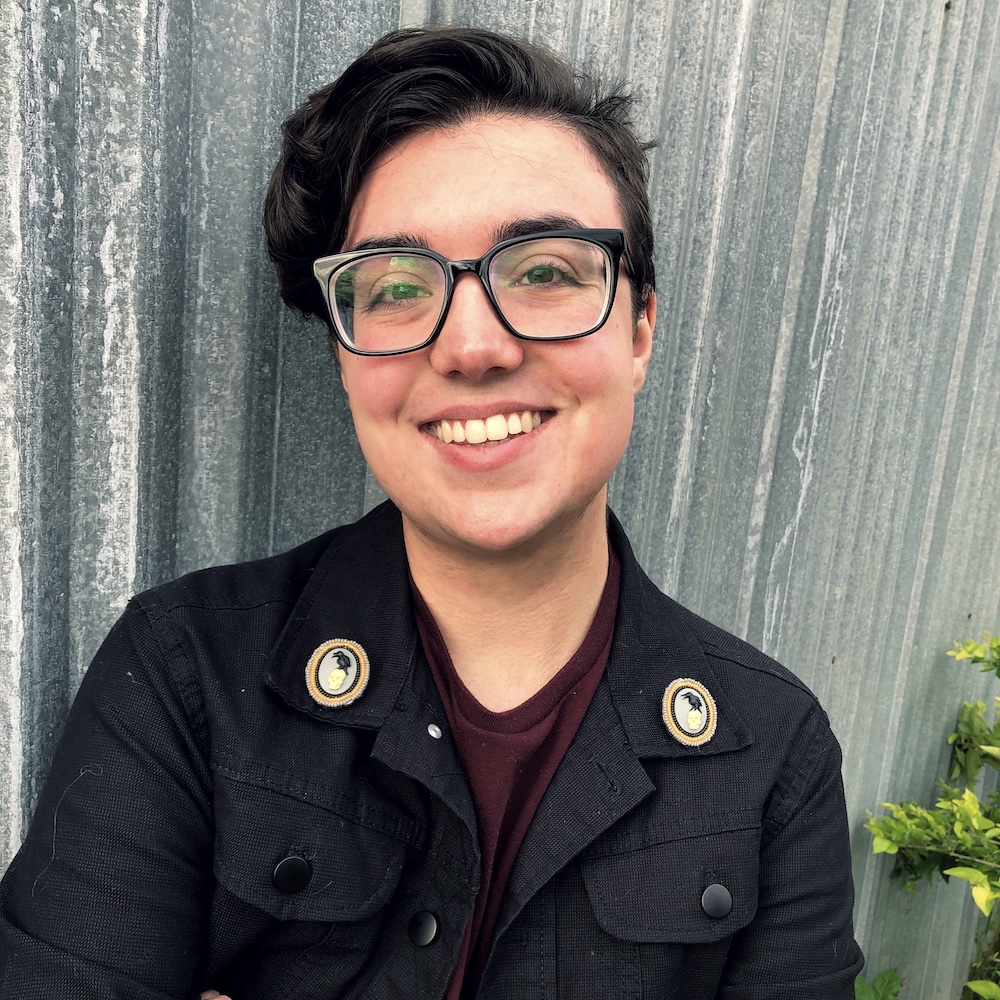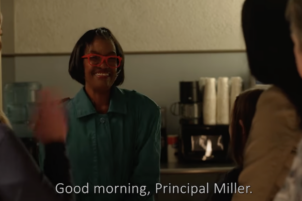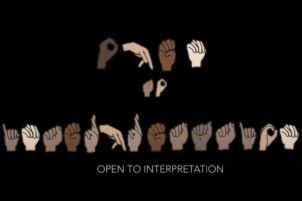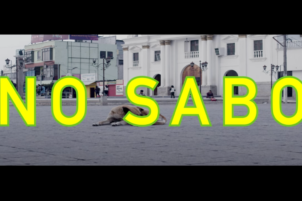(Trigger warning: sexual assault, bullying, homophobia, ableism)
 Los Angeles, March 14 – When you’re disabled, when you’re trans, when you’re a child growing up in a rural community of abuse, your body does not belong to yourself. The most important thing you can do, as impossibly difficult as it is, is to reclaim yourself.
Los Angeles, March 14 – When you’re disabled, when you’re trans, when you’re a child growing up in a rural community of abuse, your body does not belong to yourself. The most important thing you can do, as impossibly difficult as it is, is to reclaim yourself.
I always thought part of my problem was taking up space. No matter how much I try, I feel like I’m on center stage, forcing everyone to look at me by virtue of existing. But it’s a negative space. I’m not seen as a full person when I use my cane – people come up and ask intrusive, rude, even hurtful questions. I’m not seen as something binary, and therefore “real,” but some strange queer Other, due to my transness and gender presentation. I’ve never had space to breathe, never had physical space to take up fully as myself. Nowhere was safe for me to exist. So, for a long time, I didn’t.
When I was a child, trapped in a room that was in the process of being torn down, I told myself stories to keep myself sane. The only space I had was the page. At eight, I picked up one of my mom’s old Nancy Drew books and fell in love. I then devoured every book I could get my hands on – I was reading at least a book a day. Historical fiction, mystery, and fantasy were my favorites. In a life I had no control over, I found satisfaction in solving puzzles alongside Nancy Drew and her friends. I embraced the queerness and fluidity of gender in Tamora Pierce’s Tortall. I explored cultures across the globe in eras long past through the Young Royals series. It was like the world cracked open, and finally made some goddamn sense. An entire universe existed outside of this 10,000-person town. Galaxies of heroes, adventures, and friendships, allowing me to explore endless possibilities of who I could become.
But for all that possibility, I still sought to be recognized, to find myself on the page. Who existed in these worlds that was like me? Struggling with unnamed dysphoria, undiagnosed disabilities, and more than anything, the unbearable loneliness of growing up in the middle of nowhere, I wasn’t even a background character.
So I didn’t just read; I began creating worlds and became obsessed with stories as a means of escape, even if it was just for a bit. I couldn’t write – the words just wouldn’t come – but I could speak. I could present my stories for an invisible audience. Pretend someone was there, that someone cared, that someone was listening. That one day, I would matter. So I spoke my stories aloud to the ugly, green-striped wallpaper from the ‘70s. Then to the window that faced our ever-flooding pond. Then to my dresser, which was stained with the markers and mistakes of my siblings and me. Then to my dolls, the best friends I had. I was convinced that if I could write myself into a story, into a hero, then somebody would care to listen to me. If I could just be clever, adaptable, and charming, then people would be interested. Then people would hear me. I would finally have an audience, and I would finally feel real. I think about how when your whole life feels like a misalignment, seeing glimpses of a corrected vision feels both like a relief and torment. I don’t belong anywhere I am. But maybe at one point in time, I did. Just not now. Just not here.
I grew up on a small farm in a conservative, religious town in Oregon. I was homeschooled for a tumultuous third of my life. I took ballet, where every flaw was picked apart, and all my physical failings (constant nausea, dizziness, fatigue) were mocked as me not trying hard enough. During my time at community theater, sexual harassment, physical bullying, suicidal kids, and screaming parents were normalized. In church, I was taught at a young age that my body was to be reserved for Jesus only – though this had already been disproved by various men who found it entertaining to harm me.
My siblings and I also found ourselves in miscellaneous homeschool groups over the years. One of my mom’s “friends” in particular has always haunted me: A large, religious family who taught us about raising goats. We would occasionally go over to each other’s farms, learn to make ice cream out of goat milk, and really embrace country living. I would try not to focus on how their eldest son, only fourteen, was the “man of the house” who bossed his mother around. But one day, their youngest child had an accident with a tractor door and lost a finger – which could have been reattached, except the family didn’t believe in modern medicine.
Life was unsettling, but I didn’t yet have the context to fully understand why. When I spoke up with questions, I was harassed into believing that I was the problem – something that only worsened as I got older. At age eleven, I asked my mom what it meant that I had crushes on girls and boys. She said she didn’t know what was wrong with me. From a young age, I leaned into being a “good Christian girl” to make up for everything about me that was apparently defective. Those who know me now would find me unrecognizable in my homemade skirts, white blouses, and cross jewelry, all in an attempt to reflect my surroundings. My body, in short, became a costume.
After many academic twists and turns (a year at Catholic school, another year at a Christian school), I finally entered the public high school and decided enough was enough. I cut my hair and dressed in armor rather than costuming – combat boots and a cheap black leather jacket were my favorite shields. I finally gave myself a chance to experiment with what I felt good in, having realized that if I was going to be a problem everywhere, there was no longer a point in trying to be accepted. But high school presented a new set of challenges: I had no idea what the hell I was doing. I’d never been exposed to such a wide range of “normal” kids, pop culture, or public school dynamics. As I learned the space, the layout, the rules, I grew angry again – teachers were openly sexually harassing and verbally abusing myself and other students with no consequences. When I came out as bisexual during my sophomore year, I often ended up arguing my right to exist in my classes as a form of “fun” debate or a learning exercise. Even when defending myself, everyone kept demanding me to be quiet, reminding me that there was no space for me here. Again.
Throughout all this, I slowly became sicker with a mysterious illness that baffled doctors. The following decade led to endless, traumatizing medical tests and gaslighting from professionals who told me that nothing was wrong. I just wasn’t trying hard enough. I was just weak. For my entire childhood and young adult life, my body was not mine, my gender was not mine, and every time I tried to build a bubble of autonomy for myself, it was shattered. I had no say over what happened to me. I was grabbed, hit, harassed, cornered, and terrorized. Nowhere was safe.
So I dived back into stories, desperate for a lifeboat to help me survive. There, again, I had moments where I could breathe. Everything was easier from a distance. If my life never belonged to me, I could simply be a character instead. Never a person. Never myself. It was safer that way, even though I wasn’t truly represented in what I read or watched. I spent years waiting for my adventure to begin, for my hero’s journey to kick off, because then everything would be clear: my purpose, my path, my destination. I could find happiness, because all heroes I looked up to did. In many ways, this is what drove me to television. The monster-of-the-week format: the daily drudge of life was their adventure, and as such, made me feel like my day had a purpose if I, too, was simply living in an episodic format. The whole world didn’t have to make sense at the moment. I didn’t need the whole picture – that would come with time, with the seasons. In order to live to see the final antagonist, I had to keep beating the henchmen.
Of course, there are downsides to sculpting your trauma into a narrative format. We talk about a hero complex, but what about a protagonist complex? The need to not only be the hero of your own story, but every story, because your world is the only world, and as such, you must take on every single burden encompassing the globe. You have a responsibility, as the protagonist, to fix it. And if you aren’t the protagonist, does your story even matter? You lose the promise of a satisfying narrative arc, of making a difference, of being safe. You become supporting cast, vulnerable to the whims and needs of another’s journey. It’s terrifying. I’ve become so desperate to gain some semblance of control that I developed this other need, to be the protagonist. If I’m not, then my body doesn’t serve the story. And what has my body been until now if not a vessel for others’ expectations?
I thought that the only way to be heard was to be a hero, because that was the only way of earning my way into personhood. In order to make up for all my faults, I had to be exceptional. But in the real world, if you strive to be an icon, a figurehead in history, or a leader of a movement, you lose your life. It’s no longer yours. It’s a myth, a legend. A story. And for so long, I loved that idea because I hated my life. I wanted to be heard, and I wanted power. Nothing else mattered.
But now, I want to have a life. And that first step forward, past sheer survival, is reclamation. It’s disobedience. It requires a dismantling of Western, post-colonial gender. It requires dismantling the ableism created through capitalism, which demands we use our bodies as a source of profit. It requires dismantling a violent empire that has built itself around the destruction of land, of people, of compassionate resistance. I don’t know what to make of this new world as it is still being born, in all its uncertainties – but we’re writing this journey together. It’s an open road, and I’m finally learning how to drive.
So what makes me a person? I dive back into the pages, the episodes, the adventures I have memorized by heart, searching for an answer within the stories that raised me. But the deeper answer is something else, something driven by spite and living: always, always fighting to be seen, to be heard, to be recognized as real. Learning, early on, that you have nothing to lose by being blunt and angry and a little sharp around the edges. Refusing to be sanded down.
I’m still learning how to view the world outside of the context of battle. I still struggle to be a person wherever I go; often losing, but never giving in. As a child, I disobeyed to survive the indignity of what I was told to do, what was expected of me. I disobeyed to piss off the people who told me to fold, to fall into line. I disobeyed because I didn’t trust anyone. I disobeyed only when I had a purpose. Now, I disobey the way I speak: intentionally. Constantly. For no reason. For many reasons. To fight back. To show solidarity. To create peace. To cause chaos. I want to be more than some one-dimensional character: I want to be remembered as a full, complex person. Haven’t I earned that yet?
Being trans, being disabled, means disobedience. So, I disobey in my life and in my stories, over and over and over again, until the anarchy creates space for those of us who have always been left to die to exist. To be seen, to be heard, to be recognized, and most importantly, to live. I know no other way to be but radical, and I aim to keep learning, keep improving. Reminding myself of what I owe to the world before complaining about what it owes me. Thinking of how I always took to heart that one should try to live a life with risks and without regrets. I’d be a hypocrite to love the characters I did and not live up to their fictional legacy, wouldn’t I? I don’t know where I belong, but I’m tired of living in a tragedy. So I’m still looking. I’m still trying. And I’m still writing.
So my advice to my younger self is less of a mantra and more of a call to action: Here’s to writing ourselves into our bodies, our existence, our power.
*Special thanks to AJ Schmidt for helping me condense my wild thoughts into something coherent (as always).
Leo B. Allanach is an alum of RespectAbility’s 2021 Entertainment Media Lab. While the month of March is traditionally recognized as Women’s History Month, RespectAbility is using this moment to amplify the voices of all underrepresented genders in the Disability community, with a month-long editorial series titled, “Empowering the Next Generation,” acknowledging the important role each of these voices plays in the overall goal of building gender equity and equality for future generations.








